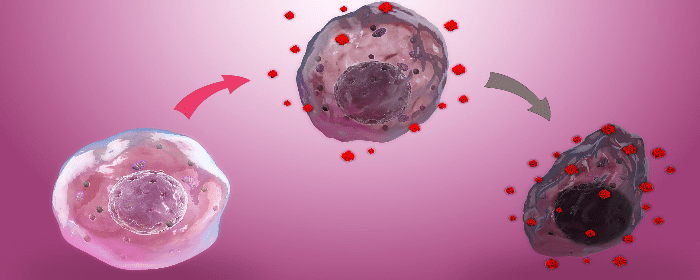Neurodegenerative diseases affect over 50 million Americans each year and occur as a result of nerve cells in the brain, peripheral nervous system, and the central nervous system slowly and progressively losing function before eventually dying[1].
Although there are over 600 known neurological disorders, the most common neurodegenerative diseases continue to be Alzheimer’s disease (AD), Parkinson’s disease (PD), Huntington’s disease (HD), and Amyotrophic lateral sclerosis (ALS).
While significant progress has been made in identifying mechanisms and risk factors contributing to the cause and development of these various neurodegenerative diseases, evidence continues to indicate that many of these conditions are influenced by oxidative stress. Research has also shown that antioxidants, the only strategy used to address this mechanism to date, have been demonstrated to be ineffective and, in some instances, even causing additional side effects.
In addition, although progress has been made in the overall understanding and management of several side effects associated with conditions contributing to neurodegeneration and that multifactor intervention introduced at an early stage is believed to be most successful, research has yet to identify a way to slow the progression of these debilitating conditions.
As part of this review, Angeloni et al. provide an analysis of recent literature examining the role of oxidative stress in several neurodegenerative diseases, including Alzheimer’s disease, Parkinson’s disease, ALS, retinal ganglion cells, and ataxia. The authors also discuss the emerging role of mesenchymal stem cells (MSC) and their potential in fighting oxidative stress and enhancing antioxidant capacity and neurotrophin expression.
Recent literature concludes that oxidative stress has a significant role in each of the neurodegenerative diseases mentioned above. Specifically, oxidative stress has been found to:
- Play a fundamental role in Alzheimer’s disease, affecting different pathways involved in AD brain cells.
- Have a causal role and also be a result of different pathologies in PD.
- Be both a cause and consequence of impaired function related to ALS.
- Be a significant cause of damage in a number of ocular neurodegenerative diseases, including diabetic retinopathy, glaucoma, and retina ischemia-reperfusion injury.
- Increase ROS production linked to mitochondrial dysfunction in ataxia cell models.
The literature also indicates that MSC therapy can be a promising future management tool for neurodegenerative disease that enhances antioxidant capacity, increases neurotrophin expression, inhibits pro-inflammatory cytokine secretions, and counteracts microglial ROS production.
However, the authors also conclude that while the role of MSCs in counteracting oxidative stress-related neurodegeneration, additional studies demonstrating a more neurodegenerative disease-specific therapeutic MSC strategy for preventing a broad range of previously mentioned disorders are needed.
Accordingly, these future studies will be useful in helping to discover the appropriate numbers of MSCs needed for transplantation, realize optimal timing of transplantation, identify the correct disease stage for transplantation, and better understand the safety, functionality, recovery, and motor and cognitive improvements of various MSCs used in this process.
Source: (2020, May 7). Role of Mesenchymal Stem Cells in Counteracting Oxidative Stress …. from https://www.ncbi.nlm.nih.gov/pmc/articles/PMC7246730/
[1] “Neurodegenerative Diseases: An Overview of Environmental Risk ….” https://www.ncbi.nlm.nih.gov/pmc/articles/PMC1280411/. Accessed 18 Oct. 2021.


 St. Petersburg, Florida
St. Petersburg, Florida
